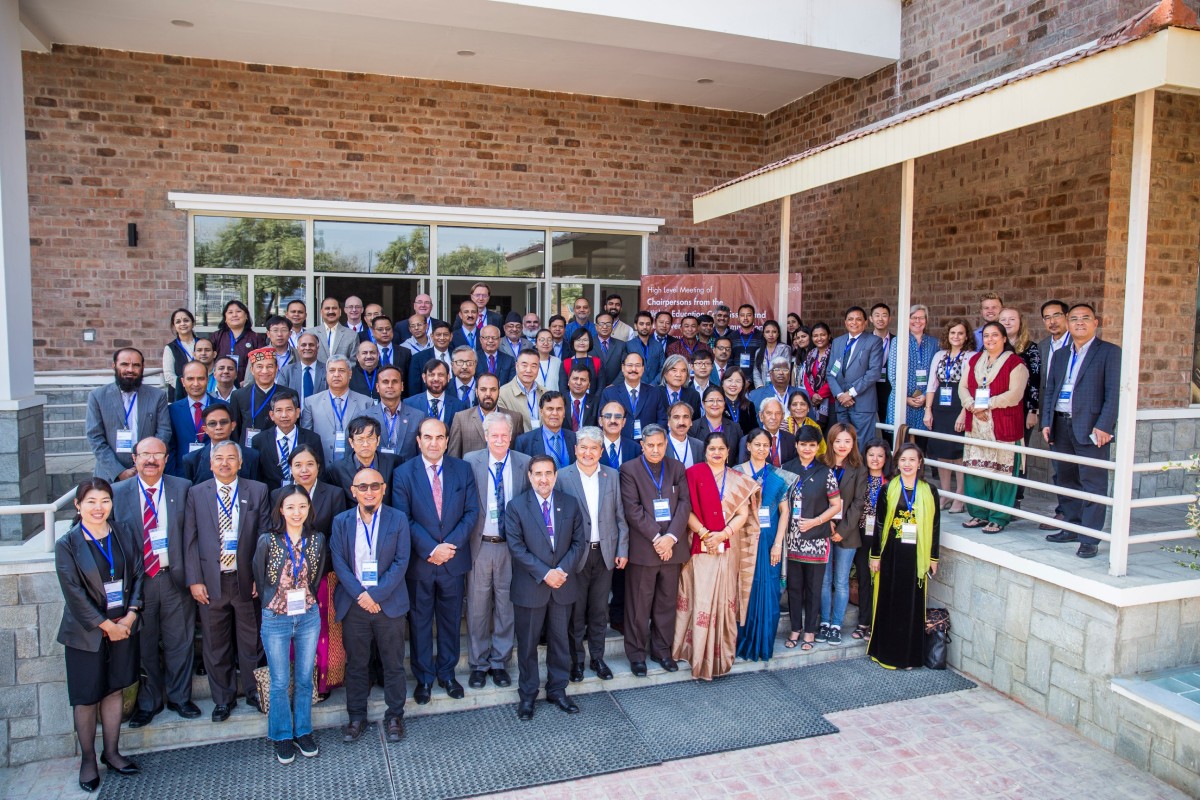The Himalayan University Consortium has its mandate in developing an effective, sustainable network of universities in the Hindu Kush Himalaya (HKH) region, in collaboration with academic, research, knowledge generating and exchange institutions both within and outside the HKH region. This network engages top-notch professional women and men capable of undertaking high-quality research, education, teaching, and knowledge dissemination in service of a mountain-specific, sustainable, fair and inclusive development for HKH communities and adjoining mountainous areas. The Consortium’s elected six-member Steering Group and a Secretariat coordinate with member institutions in network building, partnership enhancing, collaboration promoting, resource sharing and fund raising activities. The Secretariat is hosted by the Centre for Integrated Mountain Development (ICIMOD, Kathmandu), which has made HUC one of the Initiatives of the Regional Programme 6 – Mountain Knowledge and Action Networks (MKANs), funded through the generous support of ICIMOD’s core donors: the Governments of Afghanistan, Australia, Austria, Bangladesh, Bhutan, China, India, Myanmar, Nepal, Norway, Pakistan, Switzerland, and the United Kingdom.
Over the past four years, there has been a renewed interest among existing members and increased interest among potential HUC members. The total members increased from 33 in the beginning of 2016 to 62 by the end of 2017, including 47 full members from 8 countries in the HKH region and 15 associate members from outside of the HKH (Annex 1). At the HUC Annual Meeting in Chengdu, November 2017, the General Assembly endorsed the Steering Group’s proposal to establish a Task Force in drafting the HUC Strategy and Plan for Actions (SPA, 2018-2025), meanwhile reviewing the membership policies. In selected countries where members are increasing such as India, Pakistan, and Nepal, process of consultation has been initiated to discuss the need for an HUC Country Chapter. The SPA Drafts were prepared and revised according to inputs from members in selected countries during the first half of 2018.
The most recent development of HUC is the establishment of Thematic Working Groups (Annex 3). Ten (10) TWGs cover a wide range of thematic areas from climate change, water resource management, disaster reduction and resilience, mountain agriculture, non-traditional food securities, to poverty alleviation and environmental humanities. HUC TWGs are members-led clustering of researchers and practitioners from HUC members sharing similar scholarly interests, working to promote regional collaboration in research and training for sustainable mountain development. The development of TGWs is a continuation from HUC institutional grants provided to partnerships across the HKH (Annex 2).
Both country-based clusters of universities (country chapters) and thematic groups among members (TWGs) have come to realize the importance to inform state and national level policy makers of the significant potential HUC can bring in creating and sharing advance knowledge and competent workforce in service of sustainable development in upstream and downstream communities. At this end, efforts have been made in 2018 to approach University Grant Commissions in India and Nepal, Higher Education Commission in Pakistan, and National Education Planning Commission in Myanmar. Initiative responses from high level policy makers in these bodies have been overwhelming positive, indicating opportunities not only to garner support at national level but also the need to facilitate dialogue between UGC/HEC/NEPC chairpersons in the region to foster regional collaboration in research and training for SMD.

